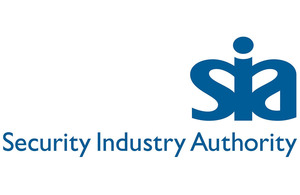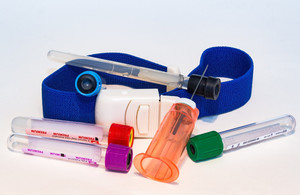Flu vaccine uptake among over 65s highest on record
NHS England and NHS Improvement, Public Health England (PHE) and the Secretary of State for Health and Social Care are thanking NHS staff for their incredible work in achieving some of the highest ever vaccination rates for flu.
Despite the complexities of rolling out the largest national NHS flu immunisation programme during a COVID-19 winter, NHS staff have vaccinated a record 80.3% of those aged 65 years and over in England against flu so far this year.
This is the highest uptake ever achieved for this group and is just under 10% higher than this time last year, exceeding the World Health Organization uptake ambition of 75%.
Uptake in 2 and 3 year old children is also the highest ever recorded, at 54.0% and 56.5% respectively.
Flu vaccine uptake rates are higher than the same time last season for all other eligible groups. This includes an uptake rate of 51.5% in clinical at-risk groups (aged under 65 years), which is the highest achieved in the last seven seasons.
These figures are a reflection of the hard work of the wide range of NHS and public health professionals involved in planning and delivering our national immunisation programme.
Dr Vanessa Saliba, Head of Flu at PHE, said:
The flu vaccine saves lives. It is therefore very encouraging to see record-high uptake rates this season, especially among the groups most vulnerable to flu, who are also most at-risk from COVID-19.
There is still time to get vaccinated against flu and we urge anyone who is eligible to take up the offer to help protect yourself, your family and the NHS.
Public Health Minister, Jo Churchill said:
It is fantastic to see that despite the unique challenges of this winter, more over 65s than ever before have had their flu vaccination and that there is such high uptake across the eligible groups.
Every year health and care staff do an incredible job rolling out the flu vaccine, and this year the COVID-19 vaccine too, to protect us all.
Dr Nikki Kanani, NHS national medical director for primary care, said:
The NHS has done an outstanding job in vaccinating a record number of people with flu and I congratulate staff for all of their fantastic efforts in achieving this as they continue to go above and beyond in these challenging times.
As we embark on the biggest vaccination programme in our history, now more than ever we are aware of the vital importance of vaccines, and so I strongly encourage everyone in the eligible groups to take up the offer of both the flu and the COVID-19 vaccine to protect themselves and their families and to save lives.
On 1 December 2020, all 50 to 64 year olds became eligible for the flu vaccine and 26.1% of those in this age group (but not in a clinical risk group) have taken up the offer so far.
The NHS in England achieves some of the highest flu vaccine uptake rates in Europe for healthcare workers, with an uptake of 74.3% by the end of the season in 2019 to 2020. By the end of November 2020, 70.5% of frontline healthcare workers had already been vaccinated, compared to 61.5% at the same period last year.
This means more than 120,000 additional healthcare workers had been vaccinated than the same time last year.
It is estimated that over 2,521,000 children were vaccinated through the school-aged programme between 1 September and 30 November 2020 (47.5%), which is 480,000 more children than at the same time last season. Monthly data showed that uptake was between 2.9 and 5.9% higher for all year groups compared to the same time last season.
The flu vaccine is safe and the best defence against flu, and one of the most effective ways to reduce pressure on the health and social care system each winter.
With COVID-19 also circulating this flu season, it remains important that those in eligible groups take up the offer of a free flu vaccine. This will also relieve pressure on the NHS and social care system when they are dealing with high numbers of COVID-19.



